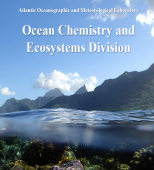The overall goal of the MARine and Estuarine goal Setting (MARES) project for South Florida "is
to reach a science-based consensus about the defining characteristics and fundamental regulating
processes of a South Florida coastal marine ecosystem that is both sustainable and capable of
providing the diverse ecosystem services upon which our society depends." From 2009 - 2012,
researchers, managers and stakeholders participated in a systematic process of reaching such a
consensus to contribute more directly and effectively to the critical decisions being made by
both policy makers and by natural resource and environmental management agencies. Product results
including reports, whitepapers and background information used throughout the MARES process are
provided below.
MARES Integrated Conceptual Ecosystem Models
The first step in the MARES process was to develop integrated conceptual ecosystem models
(ICEMs). ICEMs were produced with input from more than 60 scientists, agency resource managers,
and representatives of environmental organizations from 2009 - 2012. The resulting reports, one
for each of the three sub-regions (Florida Keys/Dry Tortugas, Southwest Florida Shelf, and Southeast
Florida Coast), contain an overview of the MARES process, a narrative example of how the MARES
process can be applied in each sub-region, and a series of appendices detailing several components
of each sub-region.
Integrated Conceptual Ecosystem Model for the Florida Keys/Dry Tortugas Coastal Marine Ecosystem
The full report is listed first followed by the individual chapters (recommended for slower internet connections).
Integrated Conceptual Ecosystem Model for the Southwest Florida Shelf Coastal Marine Ecosystem
The full report is listed first followed by the individual chapters (recommended for slower internet connections).
Integrated Conceptual Ecosystem Model for the Southeast Florida Coast Marine Ecosystem
The full report is listed first followed by the individual chapters (recommended for slower internet connections).
MARES Whitepapers
MARES Proposal and Outreach Materials
|
